
Coca-Cola, or Coke, is a carbonated soft drink manufactured by the Coca-Cola Company. In 2013, Coke products were sold in over 200 countries worldwide, with consumers drinking more than 1.8 billion company beverage servings each day. Coca-Cola ranked No. 87 in the 2018 Fortune 500 list of the largest United States corporations by total revenue. Based on Interbrand's "best global brand" study of 2020, Coca-Cola was the world's sixth most valuable brand.
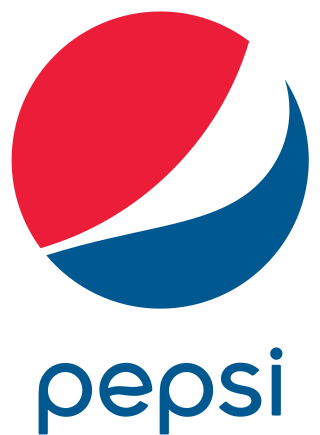
Pepsi is a carbonated soft drink manufactured by PepsiCo. Originally created and developed in 1893 by Caleb Bradham and introduced as Brad's Drink, it was renamed as Pepsi-Cola in 1898, and then shortened to Pepsi in 1961. In 2022, is was the second most valuable soft drink brand worldwide, behind Coca-Cola.

New Coke was the unofficial name of a reformulation of the soft drink Coca-Cola, introduced by The Coca-Cola Company in April 1985. It was renamed Coke II in 1990 and discontinued in July 2002.
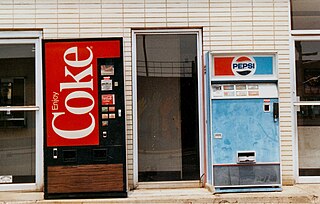
The cola wars are the long-time rivalry between soft drink producers The Coca-Cola Company and PepsiCo, who have engaged in mutually-targeted marketing campaigns for the direct competition between each company's product lines, especially their flagship colas, Coca-Cola and Pepsi. Beginning in the late 1970s and into the 1980s, the competition escalated until it became known as the cola wars.

In marketing, a coupon is a ticket or document that can be redeemed for a financial discount or rebate when purchasing a product.

Surge is a citrus-flavored soft drink first produced in the 1990s by the Coca-Cola Company to compete with Pepsi's Mountain Dew. Surge was advertised as having a more "hardcore" edge, much like Mountain Dew's advertising at the time, in an attempt to lure customers away from Pepsi. It was originally launched in Norway as Urge in 1996, and was so popular that it was released in the United States as Surge in 1997. Lagging sales caused production to be ended in 2003 for most markets.
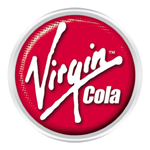
Virgin Cola was a carbonated cola soft drink, launched in 1994.

The Coca-Cola Company is an American multinational corporation founded in 1892, best known as the producer of Coca-Cola. The drink industry company also manufactures, sells, and markets other non-alcoholic beverage concentrates and syrups, and alcoholic beverages. The company's stock is listed on the NYSE and is part of the DJIA and the S&P 500 and S&P 100 indexes.
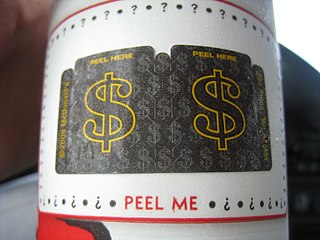
The McDonald's Monopoly game is a sales promotion run by fast food restaurant chain McDonald's, with a theme based on the Hasbro board game Monopoly. The game first ran in the U.S. in 1987 and has since been used worldwide.
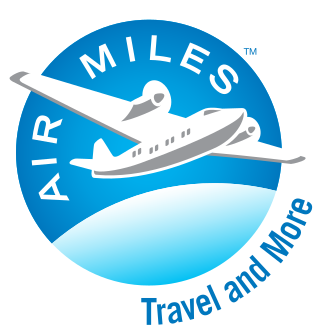
Air Miles is a group of loyalty programs operated by different companies in each region where the brand operates. The programs are available in Canada, the Netherlands, and the Middle East. Points are earned on purchases at participating merchants and can be redeemed against flights with specific airlines.

Pepsi Stuff was a major loyalty program launched by PepsiCo, first in North America on March 28, 1996 and then around the world, featuring premiums — such as T-shirts, hats, denim and leather jackets, bags, and mountain bikes — that could be purchased with Pepsi Points through the Pepsi Stuff Catalog or online. Customers could acquire points from specially marked Pepsi packages and fountain cups. Additional points were sold both by Pepsi and by consumers, the latter mainly enabled by eBay. The first Pepsi Stuff promotion ended on October 31, 1996. It was relaunched 12 years later on February 1, 2008, ended on December 31, 2008, and was relaunched as Pepsi Pass in August 2015. Pepsi Stuff was relaunched on January 22, 2018 with retro editions of Pepsi, and ended on February 28, 2019.

Coca-Cola Zero Sugar is a diet cola produced by the Coca-Cola Company.
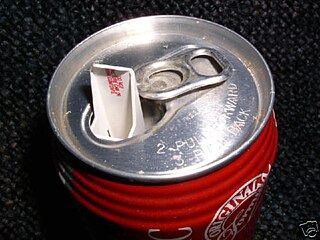
MagiCans were special, mechanical cans used by The Coca-Cola Company in the United States of America as a part of their $100-million "Magic Summer '90" promotion. The MagiCan promotion began on May 7, 1990, and ended on May 31.
Enviga is a Nestea carbonated canned green-tea drink. Enviga is a trademark of Nestlé licensed to Beverage Partners Worldwide, a joint-venture between The Coca-Cola Company and Nestlé. It is available in three flavors: Green Tea, Tropical Pomegranate, and Mixed Berry. According to Coca-Cola, Enviga burns 60 to 100 calories per three 12-oz.(330 ml) cans due to its high EGCG and caffeine content. This is disputed by some researchers and public advocates.

Club Nintendo was a customer loyalty program provided by Nintendo. The loyalty program was free to join and provided rewards in exchange for consumer feedback and loyalty to purchasing official Nintendo products. Members of Club Nintendo earned credits or "coins" by submitting codes found on Nintendo products and systems, which could be traded in for special edition items only available on Club Nintendo. Rewards included objects such as playing cards, tote bags, controllers, downloadable content, and warranty extensions on select Nintendo products.
Loyalty marketing is a marketing strategy in which a company focuses on growing and retaining existing customers through incentives. Branding, product marketing, and loyalty marketing all form part of the customer proposition – the subjective assessment by the customer of whether to purchase a brand or not based on the integrated combination of the value they receive from each of these marketing disciplines.
An incentive program is a formal scheme used to promote or encourage specific actions or behavior by a specific group of people during a defined period of time. Incentive programs are particularly used in business management to motivate employees and in sales to attract and retain customers. Scientific literature also refers to this concept as pay for performance.

MyCoke was an online chat game used for marketing the Coca-Cola brand and products. It was created in January 2002 by VML Inc an Atlanta-based digital agency using core technology from Sulake Corporation, the company responsible for a similar popular online game called Habbo Hotel. Version 2 of the game was released in late 2004 on a new technology platform called Galapagos, created by Studiocom, and featuring new locations and a special double-reward 'Coca-Cola Red Room'.

Coca-Cola Life was a reduced-calorie version of Coca-Cola, made using stevia and sugar as sweeteners. It was first released in Argentina and Chile after five years of research together in these countries. The formulation varied by market location, and in some areas the original formulation had been phased out in favor of a zero-calorie version sweetened with stevia only. The drink was discontinued in 2020 as part of the Coca-Cola Company discontinuing underperforming brands.

The Lost Island of Alanna is a branded, graphic adventure video game and marketing initiative conceived and directed by Dale Leary and developed with partner Michael Hall of Raintree Media for Coca-Cola Cherry. The game was produced for the brand in the Fall of 1997 and released in the Spring of 1998.


















